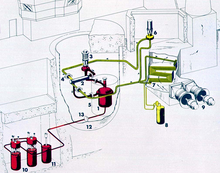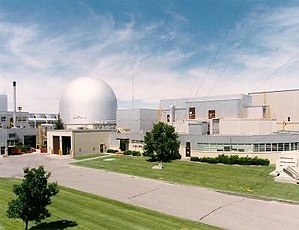The post-tsunami disaster at the Fukushima Daiichi nuclear complex in Japan raises critical questions: Can nuclear power ever be completely safe? Should the world - which had been in the process of gearing up to build many more nuclear plants - now abandon them totally? What's the alternative as we strive to reduce consumption of fossil fuels?
Double damage: This is a double disaster, firstly to Japan and its people (the horrifying drama is still unfolding as I write), and secondly to plans to increase nuclear electricity generation worldwide. Nuclear power is essentially carbon-free and without it, there would be a huge increase in coal-powered generation. Coal is the most polluting of fossil fuels: 1 ton of coal burned produces around 2.8 tons of CO2.
Lessons learned the hard way: What lessons can we learn from Fukushima and earlier nuclear disasters like Chernobyl?
- never build reactors near earthquake-prone plate boundaries
- never build them in coastal districts known to be vulnerable to tsunamis or rising sealevels
- build them with robust containment which can withstand hydrogen explosions, wartime enemy action, aircraft crashes
- don't use nuclear fuels which create dangerous and long-lived radioactive waste
And the solution? Nuclear power is going to be needed in a big way to help us kick some of the fossil fuel habit whilst supporting our energy needs. Which is the lesser evil? Global 'meltdown' due to even more rapid climate change, exacerbated if more coal is burned because nuclear power is abandoned? Or nuclear power?
But supposing there was a way to have our nuclear cake and to eat it. A way which is truly safe and within our grasp right now. There are two fundamental changes which the nuclear industry can adopt to make future nuclear power safe and acceptable. One is a change of fuel and the other a change of containment:
- stop using uranium/MOX fuels and replace with thorium: no meltdowns, no bomb-making potential, no enrichment needed, radioactive waste short lived. Thorium reactors were abandoned early on by the nuclear industry during the Cold War because they could not be used for making nuclear weapons (which need enriched U-235 and plutonium)
- the containment problem, illustrated horrifically by the Fukushima reactors, can be solved by building all future reactors deep underground. Each reactor should have a large water store above it for passive emergency cooling, employing gravity and not pumps (which failed at Fukushima). The undergound installation, at the end of its design life, can be decommissioned by sealing it complete with its complement of spent thorium fuel whose radioactivity declines in tens of years rather than thousands.
We all need energy, and much of what we use is electricity. Small but populous nations like Japan and the northern European countries cannot afford to take the risk, no matter how small, of future Fukushimas or Chernobyls. Adopting the two proposals may be more expensive but consider the enormous cost Japan will have to bear to clean up the mess and build replacement energy-generating capacity. And then there are decommissioning costs...
Suddenly,
thorium-fuelled reactors underground look like a
technology which, unlike fusion power, is ready and waiting in the wings. Its time has come. How can we make it happen?
................................................................................................
For more on thorium reactors, see
Greener Than A Thousand Suns and
Liquid Fluoride Thorium Reactors.






